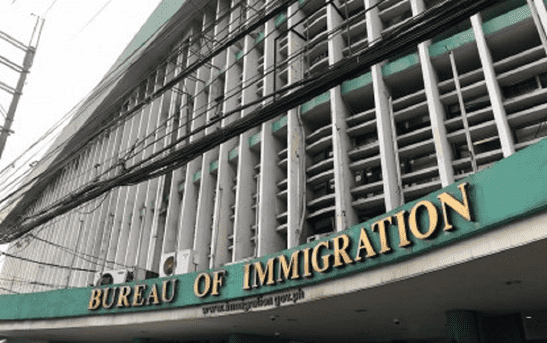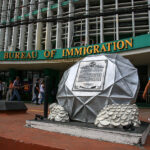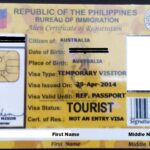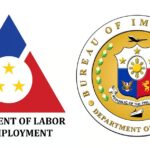Japan and the Philippines maintain a strong and dynamic partnership, with thousands of Japanese nationals visiting the Philippines each year for travel, business, study, or family reasons. While the tourist process is generally straightforward, getting the right visa or extending your stay beyond 30 days requires careful planning and documentation.
Visa Exemption for Japanese Nationals
Japanese citizens enjoy visa-free entry for stays up to 30 days in the Philippines, provided they meet the following requirements:
- Their stay does not exceed 30 days.
- They possess an onward ticket to a third country or a return ticket to Japan.
- Their passport is valid for at least six months longer than their intended stay.
Upon arrival, immigration stamps the passport with the authorized period of stay. This process enables quick, hassle-free visits for tourism, business meetings, or short social trips.
When Is a Tourist Visa (9A) Required?
If a Japanese passport holder wishes to stay for more than 30 days, a tourist visa is required. Common scenarios include extended sightseeing trips, language study, or longer business visits. There are two main routes for acquiring a tourist visa (also referred to as a non-immigrant visa or 9A visa):
- Option 1: Apply in Advance in Japan
- Submit an application to the Philippine Embassy in Tokyo at least two weeks before travel.
- Required documents include a passport (with at least six months’ validity), a visa application form (in English), a passport-size photo, proof of financial capability (e.g., a bank balance certificate), a certificate of occupation/employment, and hotel/accommodation reservations.
- Option 2: Apply Onsite in the Philippines
-
- After entering the Philippines visa-free, Japanese travelers can apply for an extension at a Bureau of Immigration office before the initial stay ends.
How to Apply for a Philippine Tourist Visa in Japan
For those seeking a tourist visa before departing Japan, the following procedure applies:
- Download and Complete the Visa Application Form
-
- Finish all sections in English and sign where indicated.
- Prepare and Gather Necessary Documents
-
- Original valid passport and a photocopy of the photo page
- Bank certificate or proof of financial capacity
- Employment certificate (or student certificate, if applicable)
- Reserved hotel booking confirmation
- Passport-sized, colored photo with white background
- Submit Your Application Early
-
- Visit the Philippine Embassy or send documents as applicable, ideally at least two weeks prior to travel.
- Claim Visa and Confirm Your Maximum Stay
-
- A single-entry tourist visa allows up to 59 days in the Philippines. For special cases or additional visits, some documentation may vary.
Applying in advance ensures travel security, but requires careful document collection and enough lead time for embassy processing.
Tourist Visa Extensions: How to Extend Your Stay in the Philippines
Japanese nationals and other foreigners who wish to remain in the Philippines beyond the visa exemption period (30 days) can apply for a visa extension at the Bureau of Immigration (BI). The process is notably convenient, and extension offices are located throughout the country.
- First Extension Application (up to 59 days total stay):
- Required documents: passport (original) and completed extension application form.
- Submit the passport and form to the BI counter, pay the fee, and wait for passport return with the updated visa seal.
- Typical fee for the first extension (as of 2018): 3,030 PHP (approx. 6,300 JPY).
- Second and Subsequent Extensions:
-
- Required: passport, extension application form, and ACR I-Card application if staying over 60 days.
- Choose an extension period (one or two months).
- Pay applicable fees; obtain or renew the ACR I-Card (Alien Certificate of Registration Identity Card).
- One-month extension: 4,400 PHP; two-month extension: 4,900 PHP (not including ACR I-Card fees, about 500 USD).
Japanese travelers can repeat extensions up to the maximum allowed stay, but must comply with documentation and deadlines set by the BI.
The Alien Certificate of Registration Identity Card (ACR I-Card)
Foreigners staying more than 60 days in the Philippines are required to obtain the ACR I-Card:
- The application follows the second stay extension.
- The card serves as an official ID for foreign nationals and must be held throughout the extended visit.
- Fees apply, and issuance takes several days; applicants must receive their cards in person.
An ACR I-Card is essential for further extensions and for compliance with Philippine immigration protocols.
Study in the Philippines: Special Study Permit (SSP)
Japanese citizens studying for short-term courses in the Philippines, regardless of visa type, must acquire a Special Study Permit (SSP):
- Required for any language program, academic, or technical training.
- Schools usually assist with SSP applications, submitting directly to BI’s Student Desk. Fees range from 5,500 to 6,500 PHP (approx. 11,500 to 13,500 JPY).
- SSP lasts six months but needs renewal if studies continue or if changing schools.
- If staying over 59 days for study, foreigners must also secure an ACR I-Card.
Studying without the proper permit can incur penalties; check with your school before enrollment.
Leaving the Philippines After Long Stays: Emigration Clearance Certificate (ECC)
Foreigners, including Japanese nationals who remain in the Philippines for over six months, must obtain an Emigration Clearance Certificate (ECC) before departure:
- ECC application is filed at the BI prior to exit.
- Required: ECC application form, five 2×2 photos, photocopy of main passport pages, visa renewal receipts, and ACR I-Card (both sides).
- There are two ECC types (ECC-A and ECC-B). The BI will advise which applies based on visa type and length of stay.
- ECC is mandatory; skipping this step can prevent you from leaving the country or cause delays at the airport.
Key Tips and Common Pitfalls for Japanese Travelers
- The easiest entry is under 30-day visa-free rules. For longer stays, plan extensions or full visas carefully and early.
- Embassy applications require more documentation and advanced planning but offer a longer initial duration (59 days).
- BI extensions are relatively quick and available nationwide, but require in-person pickups and adherence to official deadlines.
- Always check that your passport validity covers your whole intended stay plus at least six months.
- If switching from tourism to study or another purpose, get the correct permits to avoid penalties.
- All document fees are subject to change; consult the BI and your school for the latest costs.
Final Thoughts
Japanese nationals can enjoy easy access to travel, study, and business opportunities in the Philippines, but must comply with evolving visa requirements and official processes for extended stays. Knowing the differences between visa-free entry, embassy tourist visas, onsite extensions, study permits, and departure requirements is essential for stress-free travel and legal compliance.
Work Visa Philippines offers expert support for Japanese travelers, from initial visa advice to document pre-checks, extension management, and compliance with immigration rules. Make your Philippine experience seamless by working with professionals who understand local laws and the unique needs of Japanese clients.
Need Help With Philippine Visa Applications for Japanese Nationals?
Work Visa Philippines provides comprehensive assistance for Japanese travelers seeking tourist visas, extensions, study permits, or long-stay compliance. Our team guides you through every requirement, from embassy documentation to BI extensions and school permit handling. Contact us today to schedule a consultation:
- Contact Us Here
- Fill Out the Form Below
- Call us at +63 (02) 8540-9623





